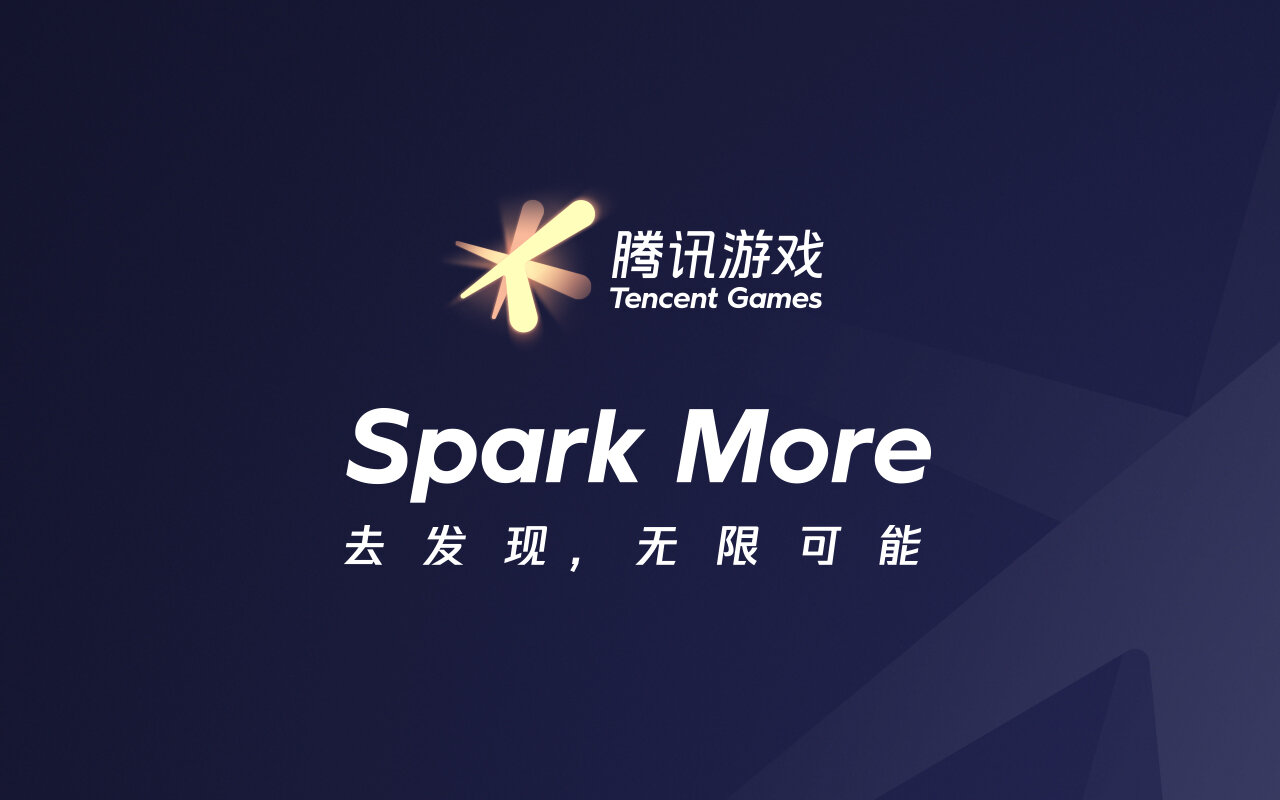Hi Everyone — It’s another earnings packed issue. But before diving in, we have big news!
We’re thrilled to announce a new partnership with Immutable and their upcoming blockchain game — Guild of Guardians! Through their first hit game (Gods Unchained) and recent efforts with Immutable X (the first Layer 2 for NFTs on Ethereum), Immutable is a pioneer and key enabler of the industry’s play-and-earn future. As Immutable’s official design advisors, we plan to combine our knowledge of mobile F2P design, with their expertise in blockchain games, to bring their vision to life through Guild of Guardians! Read the official announcement here.
"Guild of Guardians has huge aspirations to lead the revolution of blockchain games. We strongly believe that open world gaming economies and digital ownership is the future. We're excited to work with Naavik who have deep expertise in mobile RPGs, economies and the business of fun. Their support will be invaluable in creating a sustainable blockchain game with mainstream appeal." - Derek Lau (Game Lead, Guild of Guardians)
With that, let’s dive into our first ever Metacast episode and this week’s earnings!
#1: The Metacast Episode #1
The first episode of our premiere podcast, The Metacast, is officially live!
Each Friday we’ll publish a roundtable episode that discusses an array of important industry topics, and explore them a bit more than we do in the newsletter. This week we chatted about:
-
The data gold mine unveiled in the Apple vs Epic court case
-
The different types of emerging gaming ecosystems
-
Our future outlook on Applovin
There’s more to come — more roundtable discussions and more types of episodes — so make sure to give it a listen and a follow. If you have any suggestions, questions, or comments make sure to shoot us a note at [email protected].
You can follow along on our website, Spotify, Apple Podcasts, or anywhere podcasts can be found. Here is the first episode.
#2: Tencent’s Earnings Breakdown
Source: Tencent
Earlier this week, Tencent announced their Q1 2021 Earnings. Analyzing the insights behind one of gaming’s biggest companies always gives us a sneak peek into the future of the industry, but before we take a look at where they’re heading, let’s breakdown their performance:
-
The company saw notable beats in revenue ($20.6 Billion, +25% YoY) and Profit ($7.3 Billion, +65% YoY) during Q1, but a slight miss on adjusted earnings per share ($0.52 vs. an expected $0.54).
-
Total mobile games revenue came out at 41.5 billion yuan, with the company’s overall gaming revenue totaling 43.6 billion yuan (+17% YoY).
-
Honor Of Kings, one of the company’s mainstay mobile titles, saw record highs in both DAUs & paying users in February on the back of its Chinese New Years event.
Results were a far cry from 2020 highs, which saw the company’s YoY gaming revenue growth peak at +45% in Q3. Still, the overall beat against analyst expectations is well-timed news for Tencent as the company wards off concerns over regulatory limitations and the loss of COVID tailwinds. These have resulted in a 25% drop in market cap since January. But all things considered, it’s the company’s callouts about future investments and the metaverse that are worth exploring further.
Despite reportedly owning over 44% of China’s gaming market, the company is feeling increased competition from mainstays like Alibaba and upstarts like Genshin Impact developer miHoYo. As a result, the idea of turning its focus (and investments) West came up multiple times during this quarter’s earning discussions. The company noted that it would ramp up investments in high-production, AAA narrative-focused titles that appeal more to Western players. We’re already seeing the plan in action, as the company has reportedly closed 50 investments in 2021, the most recent of which happened this week when Tencent announced its participation in Bad Robot Games’ $40M Series B raise.
The other key learning from this quarter’s earnings was focused on the company’s growing interest in the metaverse. Tencent’s annual game conference, which took place on May 16th, centered around what they referred to as “the hyper digital reality”, a construct that is defined by how closely gaming is intertwined with our day-to-day digital lives. Both the conference, and direct mentions from the Q1 earnings report noted that the company is investing heavily in building out social gaming experiences directly into its instant messaging platforms. New titles will reportedly expand into exploring education initiatives and societal issues, deeply merging digital and IRL topics.
With dominance over a large piece of the Chinese market, Tencent’s strategy to deepen influence and become global in scope intrigues me. They’re roots are so intrinsically tied to Chinese culture and politics, it’s unclear if an investment-led strategy will be enough to create the same kind of dominance overseas that they see at home. I’m encouraged by the company’s willingness to innovate via AAA Western Titles + new game formats in China, but the European and American markets are already quite crowded. Put that on top of the company’s ongoing regulatory concerns, and the Tencent long-term plan isn’t a sure bet. (Written by Max Lowenthal)
#3: Sea Limited’s Earnings Breakdown
Source: Free Fire
I was dumbfounded to learn that Garena Free Fire posted over 100M DAUs this past quarter. 100M DAUs!! That’s 68.7M more than the entire Epic Games Store – Fortnite, Rocket League, etc. – in December 2020. The only comparable title is TiMi Studio’s Honor of Kings, which has in the past logged 100M DAUs. Free Fire has been the highest grossing mobile game for the past seven consecutive quarters in the fastest growing gaming markets in the world: India, Latam, and Southeast Asia.
Sea Limited isn’t by definition a games company either. I can’t underscore how significant gaming is to the underlying business infrastructure, though. There’s a virtuous flywheel that’s activated when a Free Fire player makes an in-game purchase through Sea’s ShopeePay, from which the same profile can then be used to purchase through their ecommerce or food delivery businesses. Payment frictions are removed, user profiles are saved, and APRU increases in a notable way; to this end, these gaming profits have subsidized the ecommerce business, which as a result, has been able to blitz market share in Southeast Asia and Latam (Mercado Libre’s turf). Tracking bookings almost feels misleading because of the ecosystem play, but let’s dive specifically into the Free Fire details:
-
They logged 100M DAUs and 650M QAUs, growing 61% YoY
-
Quarterly paying users grew by 123.5% YoY to 79.8M, representing 12.3% of QAUs This was up from 8.9% in Q1 2020
-
Bookings were $1.1B, up 117.4% year-on-year
-
Average bookings per user were $1.7, compared to $1.3 Q1 2020 (in part due to IP partnerships)
Strategically, Free Fire is firing on all cylinders. They have a robust esports ecosystem (Garena World drew 1.2M concurrent viewers), burgeoning IP partnership agreements (Holi Festival, Egyptian singers, manga like Attack on Titan and One Punch Man), and engaging gameplay. Further, in light of Fortnite’s unavailability on mobile, Free Fire has increased its NAMER/EMEA market share, which bodes well for ARPU in countries that typically spend more money. And despite pandemic lockdowns easing globally, time spent per DAU is still up significantly compared to pre-pandemic levels, and new cohorts are monetizing at a quicker and deeper penetration than older cohorts. This only bodes well for the business.
Much like Fortnite, Free Fire has evolved out of the bounds of a Battle Royale. While BR remains its core product, an Among Us-esque game is set to launch, friends go to hangout in the title’s digital worlds, and the game’s shared language removes culture barriers in local contexts. It’s interesting to compare both Fortnite and Free Fire because strategically they serve similar purposes: games that function as a cash cow/top of funnel for other parts of the business, but have also defined a cultural zeitgeist. Sea’s Chief Corporate office Yanjun Wang says it best when describing Free Fire’s potential:
Our focus is to continue to promote a massive-based online platform and an online community and provide them with content and opportunities for socializing engagement, trial different modes of games, trial different characters, avatars, or having different ways of playing.
Can Garena create another big hit? I’m particularly keen to see how Sea’s gaming division continues to innovate against their keystone title in a global setting. Garena boasts a large, 1000-person development team and deep learnings in F2P / live ops experiences across a variety of local environments. In the coming months and years we should expect new IP to launch. The’ve done some successful M&A in the past, but it’s yet to be seen what learnings they can bring to the table as Free Fire matures, and what might happen to Garena as a result. (Written by Fawzi Itani)
Sponsored By Heroic Labs
Powering Gram Games: Social, casual and massive scale
Heroic Labs builds server technologies that specializes in massively realtime, social, and competitive gameplay across all platforms for studios such as Paradox Interactive, Zynga, Lion Studios, and many more.
Heroic Labs’ flagship product is Nakama - the open-source, social and realtime game server.
Read more on what the CTO at Gram Games, Engin Erenturk had to say about us:
Nakama is a unique product built upon carefully selected tech with a beautifully implemented system which does more than what it promises on paper. Behind this elegant technology, there is a hardcore team who are building this robust, extendable, adoptable, scalable and complete solution piece by piece with the utmost of care. With Heroic Labs’ help, we managed to place Nakama at the heart of our game technology stack smoothly, and it has since proven itself multiple times over.
#4: Remedy Entertainment’s Earnings Breakdown
Source: Remedy Entertainment
Finland-based Remedy Entertainment is one of those studios that consistently creates hit games, but often flies under the radar. Ever heard of titles like Max Payne, Crossfire, Quantum Break, or Control? Yup, those are Remedy games – narratively-driven (and a bit lower budget than AAA games) that are often FPS in nature.
Remedy is currently in a liminal space of operation, floating between the continued success of its hits-driven games and the industry shift to more longevity-oriented games in the F2P genre. Indeed, this is apparent with their latest earnings report as they ride the lasting success of Control’s Ultimate Edition – released in early Spring – and the delay of their upcoming titles, Crossfire X and Crossfire HD, to late 2021 due to COVID: revenue was $9.88M in Q1 2021, increasing 3.4%, with operating profit at roughly $1.8M.
That said, Remedy is sitting on an excellent cash position of $76.1M (with a recent $50.6M in a direct offering of new shares. For comparison, Control only costed about $30M in development), setting themselves up for a long future of publishing. Most recently and in a strategic move, Tencent bought up 3.8% of Remedy shares from existing investor, Accendo Capital.
If I’m to name one thing that Remedy does particularly well outside of development (despite their small team of ~281), it’s their knack for partnerships. Notably, their agreement with Epic gives them 50/50 profit share agreements and full IP control, while Epic takes on the development costs. Further, the ongoing presence of Control is largely due to their partnership with Xbox Game Pass and the PlayStation store. We’ll likely see this royalty strategy play out further should their games pass regulatory hurdles in China with the help of Tencent at some point in the future.
That said, Remedy has developed a sure-fire strategy to develop games profitably with managed risk, but it’s their future orientation that gets me excited about the company’s potential growth. Rather than devote all resources to work on one title at a time, Remedy has split up into four development teams: one to work with Smilegate Entertainment to release the Crossfire franchise, two to work with Epic Games on unannounced projects (these are entering full production this year), and one to develop an upcoming called Vanguard, with support for all four from their game engine and partnerships teams. For a relatively small development team, this is quite the undertaking.
For Remedy, focus on scalability is the name of the game. They’re in a favorable position for long-term growth with their cash position and with their franchise develpment. As consolidation in the industry continues, Remedy will need to solidify their position on the value chain now more than ever: create great content, own strong IP and brand, and participate in a mix of self-publishing and publishing at great terms. (Written by Fawzi Itani)
🎮 In Other News…
💸 Funding & Acquisitions:
-
Jam City acquired Montreal-based publisher Ludia, and announced a SPAC at a $1.2B valuation. Link
-
Devolver Digital is reportedly preparing for an IPO at a $1.2B valuation. Link
-
Bad Robot Games raised a $40M Series B led by Galaxy Interactive with participation from Tencent, Horizon Ventures, and Iconiq. Link
📊 Business:
-
WB Games will likely be broken up as a result of the Discovery and AT&T Merger. With 11 studios open to acquisition, it will be a competitive market. Link
-
Twitch announced it would localize subscription cost on a per country basis. Link
-
Take-Two Interactive and NetEase also announced their Q1 earnings this week.
-
Dreamhaven announced partnerships with three studios: Lightforge games, Raid Base, and One More Game. Link
-
Netflix reportedly wants to hire a video game executive to make a push into a gaming subscription service. Link
📜 Culture & Games:
-
Tencent is launching 40+ game titles, some tied to existing IP (manga like One Punch Man) and many with educational components. Link
-
Gucci built a virtual garden in Roblox and listed Gucci-branded cosmetics on the Roblox marketplace. Link
-
There was a big push and pull between games journalists’ editorial autonomy over recent events in Palestine. Link
-
Starting June 10, the eponymous Geoff Keighley will host Summer Game Fest for the second year after receiving feedback from publishers they don’t have enough content to do their own show. Link
-
Twitch gave hot tub streamers their own category. Link
-
Gary Kasparov launched his own chess games portal. Link
👾 Miscellaneous Musings:
-
“Laura Miele is helping direct the company [EA] toward a future where it’s more attuned to customers.” Link
-
Discord redesigned their logo, here’s them outlining their thinking. Link
-
An NYT feature on ‘Robloxcore’, a music scene spawned in and for Roblox’s microverses. Link
📚 Content Worth Consuming
Game On (Greylock): “In discussions with founders and investors, as well as interviews, I describe the role that games have played in my career. It’s become a somewhat quirky facet of my public persona: Reid Hoffman, game geek. I love games, and I love talking about them. But none of these profiles has ever focused on the games themselves. They might (at best) mention one or two games and muse. So, for the latest episode of Greymatter, I sat down with my friend, Blitzscaling co-author, and fellow game geek Chris Yeh to take a deep dive into the details of how games have shaped my personality and career. Not only do we discuss why I think games are so valuable for entrepreneurs, we take an in-depth, geeky look at the specific games that impacted my life.” Link
Balancing The Meta: The Role of Games In A Crypto World (Jarrod Dicker): “The disruptive capabilities and ambitions of crypto sit restlessly within a bounded environment, like a caged wild animal looking for its opportunity to escape and wreak havoc. How to bridge this gap? Everyone agrees, to use the most common example, that it would be awesome if Fortnite enabled you to buy and sell and use Fortnite stuff outside of Fortnite. But that stuff is only valuable because Fortnite is awesome, and that awesomeness is the product of a highly managed environment. That's not to say we will never build decentralized systems and governance for a thing like Fortnite. We can and will eventually have Creator DAOs that build and run worlds. But we're not yet very close to being able to do that. And until then, we will mainly have crypto games that are more DeFi than delightful, more on-ramp to the blockchain than an engrossing destination.” Link
On Game Innovation and Plantopia (Mastering Retention): “In today’s episode, Niek Tuerlings, the senior game designer at Voodoo, tells us all about the new game they are working on: Plantopia. He tells us all the things they’ve learned, how they got to where they are and what they are expecting.” Link
The Infinite Possibilities of Video Games (Tencent): “I think games have always existed in different forms throughout human history, and these activities have helped shape society. Right now, video games have a more important role because they are driven by technology, which has expanded their potentials. It’s a way of creativity, a platform for social interaction and a connection between virtual and reality. We can’t consider the games of today in a narrow sense. Instead, today’s video games could be considered a “Hyper Digital Reality” driven forward by technologies. Games in the future will go far beyond our current imagination and will bring more possibilities to our lives.” Link
Thanks for reading, and see you next week! As always, if you have feedback let us know here.














